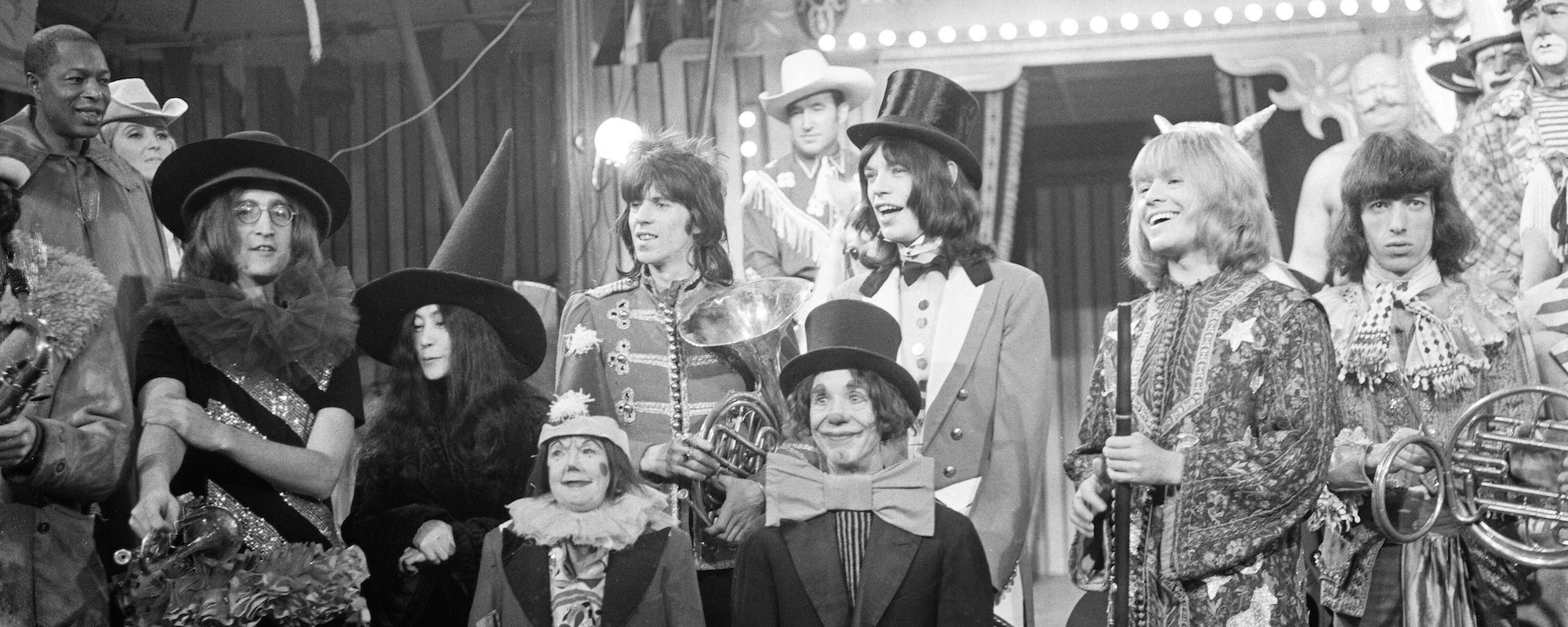Pete Townshend, The Who’s guitarist, primary songwriter, and sometimes vocalist celebrates his 79th birthday on Sunday, May 19. While Roger Daltrey is the powerful lead voice behind most of the British rock legend’s classic tunes, Townshend also has frequently made important singing contributions to many of the band’s tunes.
Videos by American Songwriter
Throughout The Who’s history, quite a few of their tunes has Daltrey singing lead on the verses and choruses, with Townshend then showcased on a bridge or brief vocal phrase.
[RELATED: Pete Townshend Now Insists “The Who Are Not Done” After Hinting Otherwise]
Here are five examples of Who songs features memorable Townshend singing interludes:
“Tattoo” (1967)
“Tattoo” is a great example of the quirky songs Townshend was writing for The Who during the band’s early years. The tune, which appears on the group’s 1967 concert album The Who Sell Out, tells the story of two long-haired teenage brothers who decide to get tattoos to prove that they are men.
The song begins with Daltrey, as one of the brothers, singing about how he and his sibling were “talking to each other about what makes a man a man.”
Townshend then comes in to sing a pair of melodic lines that only appears that one time in the song: “Our old man didn’t like our appearance / He said that only women wear long hair.”
“Pinball Wizard” (1969)
“Pinball Wizard” was one of the most famous tunes from The Who’s 1969 rock opera Tommy, and one of the band’s biggest hits of the 1960s. Released as a single, the song peaked at No. 19 on the Billboard Hot 100.
The song features Daltrey singing as a character who is a pinball champion, but is about to be dethroned by Tommy, the “dead, dumb, and blind kid” who has unparalleled pinball abilities.
About halfway through the song, Townshend comes in as the voice of an observer who’s impressed by Tommy’s skills. Townshend sings to the soon-to-be-ex champion, “How do you think he does it?” to which Daltrey responds, “I don’t know.” Townshend then asks, “What makes him so good?” Daltrey then continues to sing about why Tommy “plays a mean pinball.”
“Baba O’Riley” (1971)
“Baba O’Riley” is one of The Who’s all-time classic songs, and one of the centerpieces of the band’s 1971 album Who’s Next.
The song originally was intended for a multimedia concept project Townshend had envisioned called Lifehouse. The story was set in a dystopian future where the land has been polluted and the people are controlled by an oppressive government.
The tune is about a Scottish farmer who was gathering his family together to travel through the wasteland that the U.K. had become to attend a subversive concert event in London.
After Daltrey belts out the first verse, Townshend comes in and sings the memorable lines, “Don’t cry, don’t raise your eye / It’s only teenage wasteland!”
“Bargain” (1971)
“Bargain” was another classic song from Who’s Next. Townshend was inspired to write the tune by the teachings of his spiritual guru, Meher Baba, who preached that one could find enlightenment by giving away all material goods.
After Daltrey powerfully belts out the song’s first two verses and choruses, Townshend sweetly sings a melodic bridge section. The lyrics are: “I sit looking ’round, I look at my face in the mirror / I know I’m worth nothing without you / In life one and one don’t make two, one and one make one / And I’m looking for that free ride to me / I’m looking for you.”
“Athena” (1982)
“Athena” was featured on The Who’s 1982 album, It’s Hard. It is the last song by the band to date to reach the Top 40 of the Hot 100, peaking at No. 28 on the chart.
The song originally was called “Teresa,” and was written about actress Theresa Russell, with whom Townshend had an unrequited obsession. Russell was married to director Nicholas Roeg at the time, and Townshend decided it would be better to change the name of the woman in the song, so he settled on Athena, the Greek goddess of warfare.
While Daltrey sings the song’s verses and other parts, Townshend croons two sections, the catchy repetitive “just a girl, just a girl” chorus and a bridge.
In the bridge, he sings, “Look into the face of a child / Measure how long you smiled before the memory claimed / How long would children remain / How long could children remain.”












Leave a Reply
Only members can comment. Become a member. Already a member? Log in.